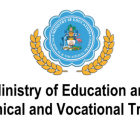NASSAU, The Bahamas – A recent study of suicide in The Bahamas indicates that one quarter of the persons living in The Bahamas have considered suicide, a leading public health official said Thursday.
Addressing the Opening Session of a One-Day Suicide Prevention Symposium, September 10, held in observance of World Suicide Prevention Day, Mrs. Hannah Gray, the Acting Managing Director of the Public Hospitals Authority (PHA) said the Report also indicated that young males were seven times more likely to commit suicide than women in the same age-group.
The Study was conducted by noted Bahamian psychiatrist, Dr. David Allen, and his research team.
“This startling reality should underscore the importance of effectively educating and equipping key persons in the public service, healthcare systems, schools, law enforcement and our communities and neighbourhoods to deal with suicide and attempted suicide,” Mrs. Gray added.
Mrs. Gray said the symposium, hosted by the Ministry of Health, the Public Hospitals Authority, the Pan American Health Organization (PAHO), and Sandilands Rehabilitation Centre, was one of a number of the Government of The Bahamas’ responses as it continues to address suicide prevention and reduction within the Commonwealth.
The Government has also “scaled up” resources designated for the public healthcare system (spearheaded by Sandilands Rehabilitation Centre) to attack the stigma associated with mental illness.
Mental health officials say shame, which is fueled by stigma and negative misconceptions of individuals who suffer from psychiatric or psychological disorders, is a barrier to treatment “for far too many people who may otherwise benefit from mental health services.”
Resources have also been made available through school counselors, school nurse, public health professionals, private health providers and counselors and psychologists with the Ministries of Education, Science and Technology and the Ministry of Social Services and Community Development and at local community clinics as well as the public hospitals to allow persons at risk of suicide to access “relevant mental health and counseling services.”
“By definition, suicide is a preventable cause of death and social scientists, mental health professionals, religious organizations and concerned citizens are committed to research, interventions and treatment which will decrease incidents of suicide and attempted suicide,” Minster of Health, the Hon. Dr. Michael Perry Gomez said.
Representatives from the public and private sector, local healthcare systems, schools, law enforcement agencies, community associations and human resource managers, social workers, pastors and church officials and individual members of the general public, all packed the All-Saints Anglican Church Community Centre to hear addresses from a wide variety of local experts determined to get a comprehensive understanding of suicide, how it can be prevented and how cases should be managed.
Topics included Workplace Stress and Its Effect on Mental Health and Suicidal Behaviour; Preventive Measures, Coping Strategies and Conflict Resolution; the Hidden World of Self-Harm (Cutting); Suicide in Children; Suicide in the Workplace; De-stigmatizing Mental Illness; Warning Signs and How to Get Help, among others.
Participants also received expert instruction in receiving suicidal calls; assessing the level of suicide risk, skills for handling the caller and the questions to ask once the caller admits to thoughts of suicide.
Presenters included Dr. Tracey King, Clinical Psychologist, Sandilands Rehabilitation Centre; Carolyn Roberts, Head of Psychology department, Sandilands Rehabilitation Centre; Richard Adderley, Industrial Organizational Psychology and President of The Bahamas Psychology Association; Assistant Commissioner of Police, Stephen Dean, and Rochelle Basden Senior Clinical Psychologist, Sandilands Rehabilitation Centre.
Other presenters included Dr. Sean Knowles, Reverend Dr. Angela Palacious and Ms. Shavone Lightbourne.
Mrs. Gray said Thursday’s symposium was “an essential public health education tool” that will empower persons who have direct contact with those persons at-risk for self-harm.
“It will provide the skills necessary to recognize those who may be vulnerable to suicide and attempted suicide and to intervene and refer those in crisis for appropriate support and specialist services,” Mrs. Gray said.





